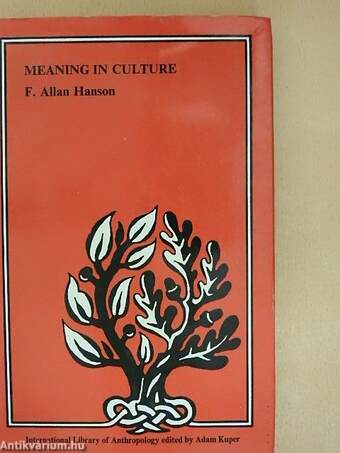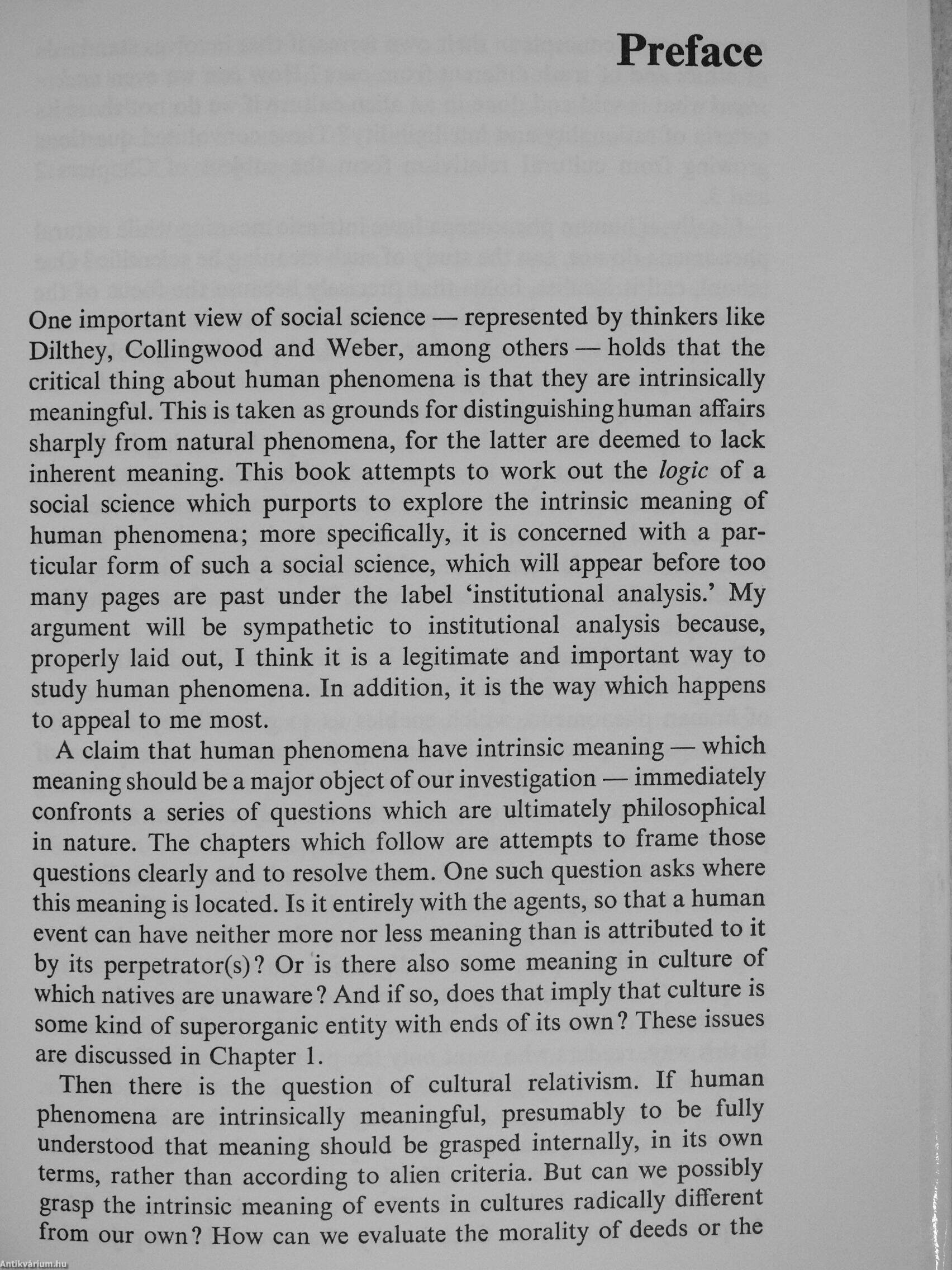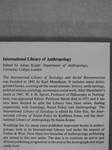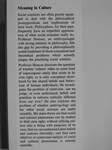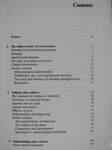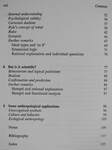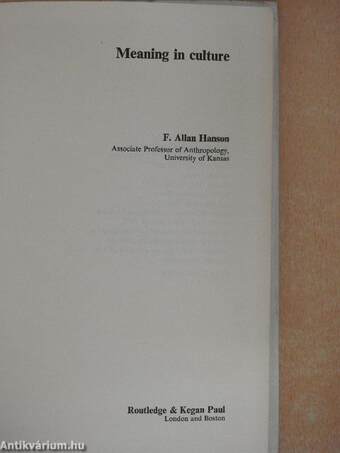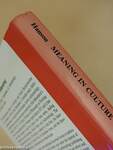1.072.879
kiadvánnyal nyújtjuk Magyarország legnagyobb antikvár könyv-kínálatát

VISSZA
A TETEJÉRE
JAVASLATOKÉszre-
vételek
Meaning in culture
| Kiadó: | Routledge & Kegan Paul Ltd. |
|---|---|
| Kiadás helye: | London |
| Kiadás éve: | |
| Kötés típusa: | Vászon |
| Oldalszám: | 127 oldal |
| Sorozatcím: | International Library of Antropology |
| Kötetszám: | |
| Nyelv: | Angol |
| Méret: | 22 cm x 14 cm |
| ISBN: | 0-7100-8132-4 |
naponta értesítjük a beérkező friss
kiadványokról
naponta értesítjük a beérkező friss
kiadványokról
Előszó
TovábbFülszöveg
International Library of Anthropology
Edited by Adam Kuper Department of Anthropology, University College London
The International Library of Sociology and Social Reconstruction was founded in 1942 by Karl Mannheim. It includes many distinguished books, covering all the social sciences: history, anthropology, political science, sociology, economics, social work. After Mannheim's death in 1947, W. J. H. Sprott, Professor of Philosophy at Nottingham, was appointed Editor. Professor Sprott died in 1971 and it has now been decided to split the Library into three series, dealing respectively with Sociology, Social Policy and Anthropology. The International Library of Sociology is edited by John Rex, the International Library of Social Policy by Kathleen Jones, and the International Library of Anthropology by Adam Kuper.
Routledge has for many years published important books in anthropology, both in its International Library and under the imprint of Cohen & West. Now these two... Tovább
Fülszöveg
International Library of Anthropology
Edited by Adam Kuper Department of Anthropology, University College London
The International Library of Sociology and Social Reconstruction was founded in 1942 by Karl Mannheim. It includes many distinguished books, covering all the social sciences: history, anthropology, political science, sociology, economics, social work. After Mannheim's death in 1947, W. J. H. Sprott, Professor of Philosophy at Nottingham, was appointed Editor. Professor Sprott died in 1971 and it has now been decided to split the Library into three series, dealing respectively with Sociology, Social Policy and Anthropology. The International Library of Sociology is edited by John Rex, the International Library of Social Policy by Kathleen Jones, and the International Library of Anthropology by Adam Kuper.
Routledge has for many years published important books in anthropology, both in its International Library and under the imprint of Cohen & West. Now these two branches of anthropology publishing are united in this new series. The aim is to continue an active and diverse pubUshing programme in the area at the monograph and major study level.
Meaning in Culture
Social scientists are often poorly equipped to deal with the philosophical presuppositions and implications of their work. Philosophers, for their part, frequently have an imperfect appreciation of what social scientists really do. Professor Hanson, an anthropologist with strong interests in philosophy, fills this gap by providing a philosophically sound treatment of those conceptual and theoretical problems which actually plague the practising social scientist.
Professor Hanson discusses the question of whether 'culture' refers to some kind of superorganic entity that exists in its own right, or is only convenient shorthand for the shared beliefs and behaviour of human individuals. He investigates the problem of relativism: can we judge, or even understand, beliefs and practices in cultures radically different from our own? He also explores the problem of whether anthropology and the other social sciences are really scientific. His main theses are that social and cultural phenomena can be studied in their own right, without reifying culture into a being with purposes of its own; that we can understand alien beliefs and customs internally; and that such relativist or contextual analysis of social and cultural phenomena is entirely scientific. Vissza



